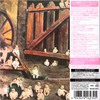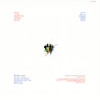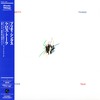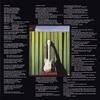Label: Akarma Records (Italy), AK 094
Style: Rock, Soul
Country: San Francisco, California, U.S.
Time: 32:20
Format: Flac Tracks 16/44,1 kHz
Size: 212 Mb
Rock guitarist Leigh Stephens was a founding member of the power trio Blue Cheer, a hard rock band based in San Francisco, along with bassist/vocalist Dickie Peterson and drummer Paul Whaley. The group was signed to Philips Records and released its debut album, Vincebus Eruptum, in January 1968. Containing a Top 20 revival of Eddie Cochran’s "Summertime Blues," the LP soared to number 11 in the Billboard chart. Less successful was the follow-up, Outsideinside, released in August 1968, which reached the Top 100. In late 1968, Stephens, who later described himself as the only member of Blue Cheer not to be "chemically challenged" (i.e., using drugs), was asked to leave the group after criticizing the behavior of his bandmates. He signed a solo deal with Philips and moved to Great Britain, where he recorded his debut solo album, Red Weather (February 1969). Returning to San Francisco, he formed a new band, Silver Metre, with singer Jack Reynolds on bass, keyboard player Pete Sears, and drummer Mick Waller. The band signed to National General Records and released one self-titled album, which was notable for containing three Elton John/Bernie Taupin songs, two of which, "Country Comforts" and "Now They’ve Found Me" (aka "Ballad of a Well-Known Gun") had not yet appeared on an Elton John album. Silver Metre broke up in November 1970, and Stephens recorded a second solo album, Cast of Thousands (1971) for the British Charisma label. He then formed a new band, Pilot, which featured Waller, guitarist Bruce Stephens (who had been a replacement member of Blue Cheer), bassist Neville Whitehead, and Martin Quittenton. They signed to RCA Victor Records and released a self-titled debut album in 1972, after which Stephens left the group. His next band was called Foxtrot and featured keyboard player George Michalski, bassist/vocalist Gary Richwine, and drummer David Beebe. They signed to Motown Records and recorded an album in 1974, but it was never released. More abortive projects followed during the ’70s and into the 80s, but Stephens did not have another legitimate record release until 1998, when he was a member of a band called Chronic with a "K" also featuring singer/keyboardist Melissa Olsen, bassist Ron Stone, and drummer Ryan Goodpastor that released Ride the Thunder on ChroniCorp Records. In 2004, Stephens self-released his third solo album, High Strung/Low Key.
(ru.motolyrics.com/leigh-stephens.html)
01. The World Famous Soul Transplant (03:30)
02. Medicine Man (03:46)
03. Simple Song (04:48)
04. Handful Of Friends (01:49)
05. Oh Lord (05:32)
06. Jumping Jack Flash (04:47)
07. Sweet Love Of Mine (02:42)
08. Chunk Of Funk (05:24)



















































